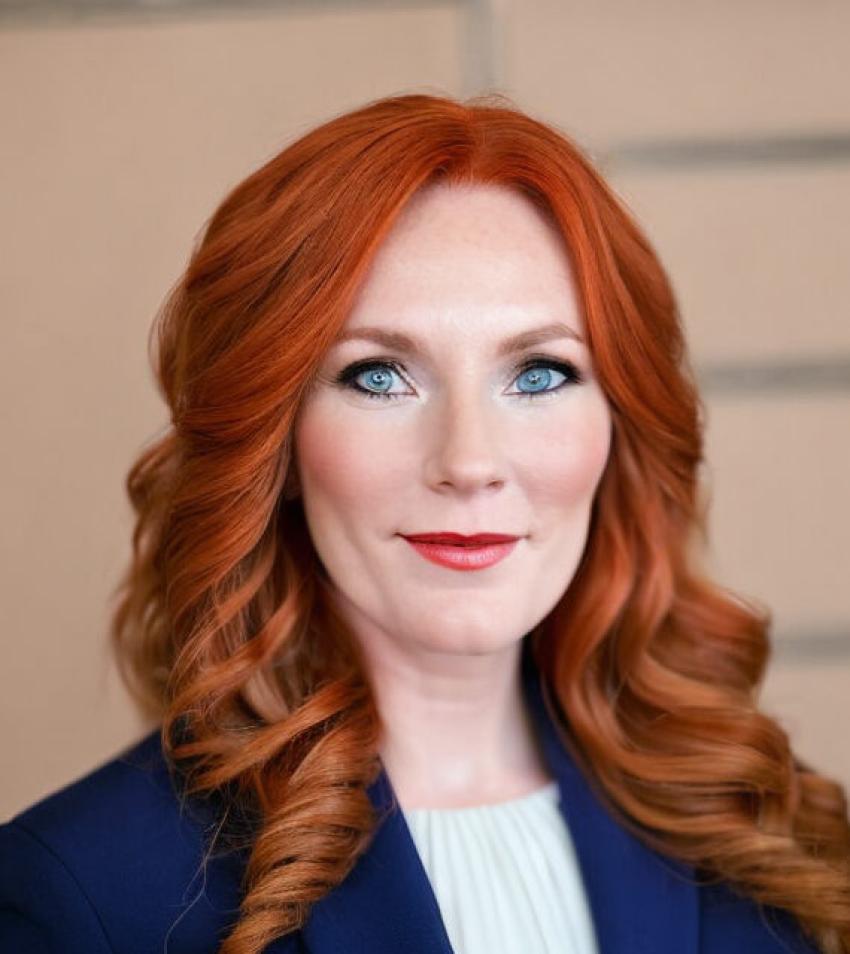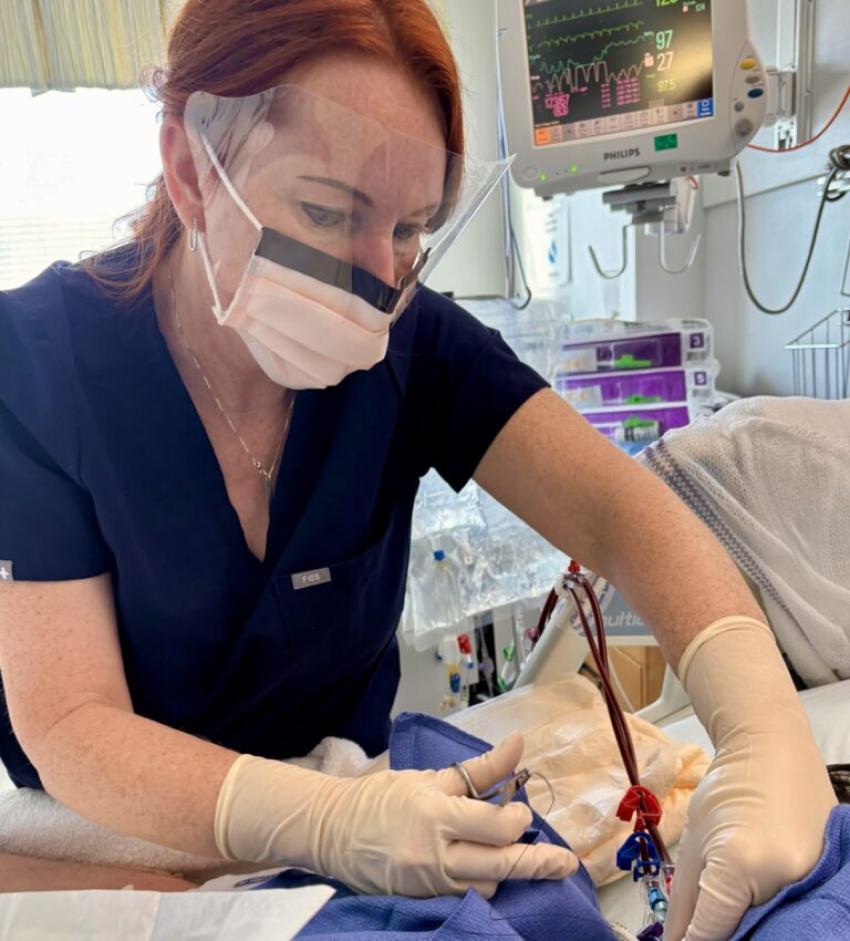PA in Rural Kentucky Promotes the Profession Both Locally and Internationally

“We can play a key role in shaping policies and systems that improve patient outcomes and expand access to quality care”
By Dave Andrews
aapa.org
Knowing the patient before they even set foot in the hospital or clinic is a rare occurrence for most providers. But for Onieta Stewart, DMSc, PA-C, it feels like it happens all the time — and it’s one of the aspects she loves most about her job.
Stewart, a graduate of the College of Health Sciences' Physician Assistant Studies department, is a critical care physician associate at UK St. Claire, a hospital that serves an expansive, rural area in eastern Kentucky. The bucolic setting is familiar to Stewart, who grew up on a large farm in Kentucky. Having that background, she says, enables her to more easily connect with her patients.
“Knowing where the patients are coming from is a big part of [rural healthcare] because you have to really understand the population and their culture,” Stewart said. “It helps them trust you more readily and, if they trust you, they’re much more likely to be adherent.”

Stewart, 46, has a seasoned approach to care, even though she has only been practicing as a PA for two years. At age 40, after working most of her professional life as a veterinary technician, she decided to switch gears and pursue her passion in (human) healthcare — specifically in a rural area.
“My journey to become a PA took a bit longer than it typically does for others,” Stewart quipped, “but I couldn’t be happier. It’s a true honor to be part of the solution to our growing need for healthcare in underserved communities.”
Making the Most of Leadership Opportunities
Stewart admits her role has unique challenges and often requires long shifts; she typically works between 50-60 hours a week. Nevertheless, she loves her role in rural medicine because she gets to work with a high level of autonomy and treat a larger portion of complex cases.
“Especially for PAs, [rural healthcare] is a great opportunity for us to work at the top of our license,” Stewart said. “We don’t have access to every specialist at our fingertips, so we often rely on our clinical ingenuity and resourcefulness. As inpatient ICU providers, we frequently have to think outside the box, leveraging our skills, knowledge, and teamwork to provide comprehensive care for our patients.”
Knowing she would eventually want to take on additional leadership roles after becoming a PA, Stewart decided to earn her clinical doctorate while in her residency year. The additional education has been beneficial in guiding her work as the assistant director of the hospital’s residency program as well as a volunteer faculty for the University of Kentucky PA program.
“The PA profession recruits natural leaders, in my opinion, and [Stewart] is a shining example of that,” said Dr. Virginia Valentin, DrPH, PA-C, an associate professor who serves as the chair for the Department of PA studies and the director for the PA residency program at the University of Kentucky.
“She became class president as a student in our program and was ultimately the first PA resident at St. Claire Hospital,” Valentin said. “Becoming the hospital’s residency program assistant director was yet another example of how Onieta really is someone who breaks the glass ceiling.”
Stewart sees her role in guiding the residency program as a chance to help improve access to care. However, she concedes that recruitment can be challenging, despite the countless opportunities readily available for residents in rural areas.

“Residencies here aren’t nearly as competitive to get into compared to those in larger cities,” Stewart said. “And for specialties like cardiology, urology, you name it—pretty much any specialty in a rural area is going to say [to PAs], ‘Yeah, come on over. We need you.’
“If you’re willing to work hard and learn,” she said, “then you will thrive because more PAs are needed in these areas.”
Showcasing the Value of PAs
Stewart’s dedication to promoting the PA profession is gradually making an impact not only throughout rural Kentucky, but also abroad.
Through an ongoing partnership that Valentin has cultivated with clinical leaders at HAN University in Nijmegen, Netherlands, a small group of Dutch and German PA students and healthcare leaders traveled to Kentucky in 2023. During their visit, they observed how the PAs at UK St. Claire worked with their patients and collaborated with other providers.
Less than a year later, Stewart, Valentin, and two of their UK St. Claire colleagues traveled to Europe where they toured facilities in Germany and the Netherlands. For seven days, the American providers were able to not only observe their European counterparts, but to help them better understand the value PAs can add to any healthcare setting.
“Taking part in meaningful, in-depth conversations with healthcare leaders from other countries was an incredible opportunity,” Stewart said. “We as PAs want to make an impact and let people know how versatile we can be. I know it helped them better understand how we function, the impact we can have and the versatility we offer as providers.”
Continuing to facilitate high-level collaborations among different provider groups, especially on an international level, is a priority for Valentin. Plans are already in the works for another international trip in 2025.
“I really think those interactions are transformative,” Valentin said. “Sharing ideas and seeing different ways in which we can provide healthcare is truly meaningful, especially as we continue to look for ways to improve access to care.”
Both Stewart and Valentin agree that a critical first step for PAs is having a seat at the table. And getting to the table often involves taking on additional education and training opportunities to further develop the skills to be effective leaders.
“Having PAs included in leadership positions is vital because it allows us to advocate for innovative solutions to healthcare challenges, particularly in rural areas where access to care is limited,” Stewart said. “By bringing our unique perspective and hands-on clinical experience, we can play a key role in shaping policies and systems that improve patient outcomes and expand access to quality care.”